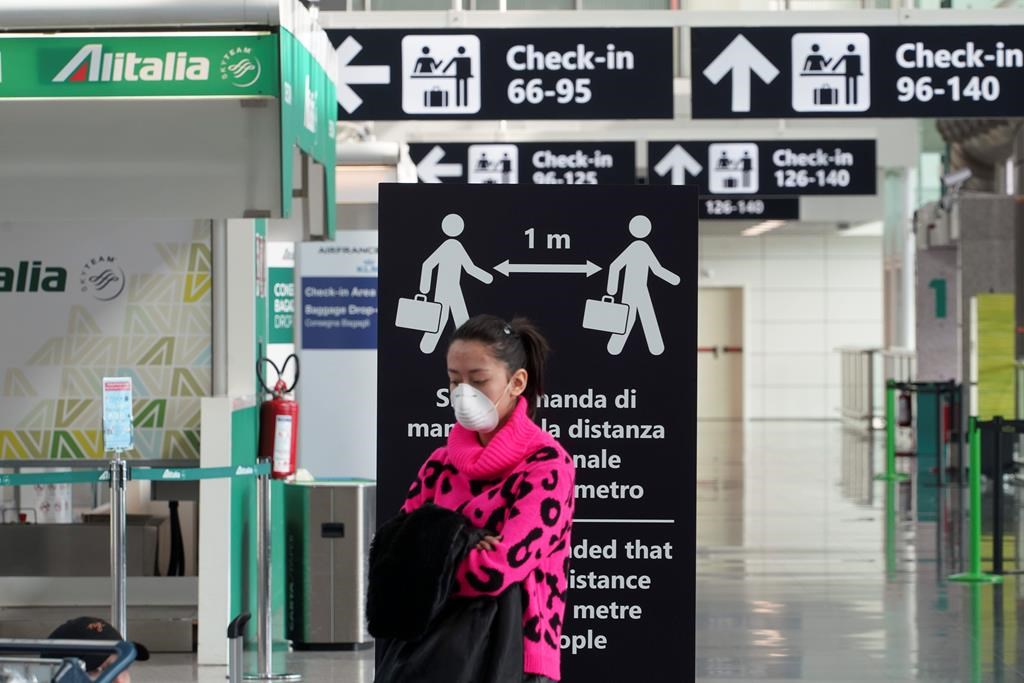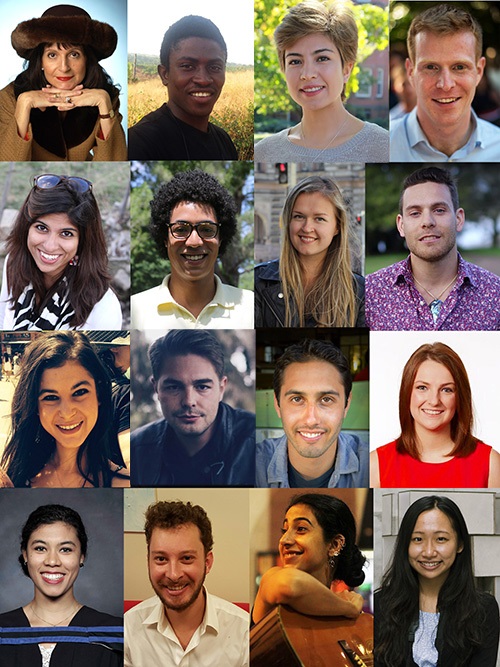With global travel almost at a standstill, the latest results of the Henley Passport Index offer disturbing insight into the indiscriminate havoc caused by the COVID-19 pandemic. Since its inception in 2006, the index has provided the authoritative annual ranking of global passport strength. Travel freedom has increased dramatically over the period in 2006, a citizen could travel to 58 destinations on average without a visa from the host nation; 14 years later, this number has almost doubled to 107.

Japan’s passport continues to hold the top spot on the Henley Passport Index as we enter the second quarter of 2020, but the reality is that current stringent travel restrictions mean that most non-essential travel for Japanese nationals is heavily curtailed.
This is true for almost every country of course, as more travel bans are implemented daily, and ever-more stringent coronavirus lockdown regulations are imposed by governments worldwide. With 3.5 billion people, nearly half the global population, presently living in voluntary or mandatory confinement, the latest results from the index — which is based on exclusive data from the International Air Transport Association (IATA) — raise challenging questions about what travel freedom and global mobility really mean, both currently and in a deeply uncertain post-pandemic future.
Dr. Christian H. Kaelin, Chairman of Henley & Partners and the inventor of the passport index concept, points out that in an unprecedented global health emergency such as this, relative passport strength becomes temporarily meaningless. “A Swiss citizen can, in theory, travel to 185 destinations around the world without needing a visa in advance, but the last few weeks have made it apparent that travel freedom is contingent on factors that occasionally can be utterly beyond our control. This is, of course, something that citizens of countries with weak passports in the lower ranks of the index are all too familiar with. As public health concerns and security rightfully take precedence over all else now, even within the otherwise borderless EU, this is an opportunity to reflect on what freedom of movement and citizenship essentially mean for those of us who have perhaps taken them for granted in the past.”

The future of international mobility after COVID-19
Commenting on the latest Henley Passport Index, bestselling author and the Founder and Managing Partner of FutureMap, Dr. Parag Khanna, says the combined effect of the COVID-19 pandemic on public health, the global economy, and social behavior could lead to much deeper shifts in our human geography and future distribution around the world. “This may seem ironic given today’s widespread border closures and standstill in global transportation, but as the curtain lifts, people will seek to move from poorly governed and ill-prepared ‘red zones’ to ‘green zones’ or places with better medical care. Alternatively, people may relocate to places where involuntary quarantine, whenever it strikes next, is less torturous.
In the US, both domestic and international migration were surging before the pandemic, with Gen-Xers and millennials shifting to cheaper, second-tier cities in the Sun Belt or abroad to Latin America and Asia in search of an affordable life.
Once quarantines lift and airline prices stand at rock bottom, expect more people across the globe to gather their belongings and buy one-way tickets to countries affordable enough to start fresh.”
This is supported by emerging research and analysis commissioned by Henley & Partners, which suggests that despite freedom of movement currently being restricted as a temporary measure, there is a risk that this will negatively affect international mobility in the long run. Political science researchers Uğur Altundal and Ömer Zarpli of Syracuse University and the University of Pittsburgh, respectively, note that public health concerns have historically been used to justify restricting mobility, but governments usually adopt travel restrictions temporarily, in response to short-term health needs. Until now, health security has not been a significant determinant or requirement when negotiating visa waivers, but Altundal and Zarpli warn that “increasing public health concerns due to the outbreak of COVID-19 may change thisthe quality and level of health security of a country could be a significant consideration for visa waivers in future”. The unprecedented and overwhelming focus on health security and pandemic preparedness we now see may change the face of global mobility forever.
On the other hand, Prof. Simone Bertoli, Professor of Economics at CERDI, Université Clermont Auvergne in France, says that the necessity of international collaboration in fighting the pandemic could ultimately reduce current barriers to international mobility. “Humanity is confronted with a truly global challenge against which no country — irrespective of its level of income — can fully protect itself. This pandemic could therefore trigger renewed and more intense international cooperation, something that has (so far) not happened with the other main global challenge that the world is currently facing, namely climate change.”

Brexit, travel bans, and changing timelines
The chaos caused by the COVID-19 pandemic has cast further doubt on the timeline for the implementation of the UK’s post-Brexit immigration system, according to Madeleine Sumption, Director of the Migration Observatory at the University of Oxford. The UK, currently in 7th place on the Henley Passport Index, with citizens theoretically able to access 185 destinations without acquiring a visa in advance, was set to end free movement with the EU in January 2021. However, as Sumption says, “The UK can only implement its new immigration system when the post-Brexit ‘transition period’ is over, and if this is extended to give negotiators more time to discuss trade and other issues, we may not be seeing the end of free movement with the EU quite yet.”
In the US, also in 7th place on the Henley Passport Index, the impact of travel bans implemented at the beginning of the year appear to have been compounded by the pandemic, according to Greg Lindsay, Director of Applied Research at NewCities. “For the children of a rising global middle class with more and more options, this pandemic may prove to be the tipping point in terms of choosing educational destinations. When the world gradually recovers with China, South Korea, and Singapore already succeeding in slowing the outbreak through effective quarantines don’t be surprised if the best and brightest take coronavirus responses into consideration when deciding on their future options.”
A unique hedge against volatility in an uncertain future
Commenting on the ever-expanding growth and popularity of the investment migration industry, Dr. Juerg Steffen, CEO of Henley & Partners, says: “We believe that in the post COVID-19 environment, investment migration will take on a dramatically enhanced importance for both individual investors and sovereign states. Acquiring alternative residence or citizenship will act as a hedge against the significant macro-economic volatility that is predicted, creating even more sovereign and societal value across the world.” For the Silo, by Sarah Nicklin.
Supplemental
Global Headlines for Q2 2020: growth in travel freedom over past decade
- Japan retains its top spot on the Henley Passport Index, with a visa-free/visa-on-arrival score of 191. Over the past decade its travel freedom score has increased by 31 points: in 2010, the country was ranked 6th worldwide, with a visa-free/visa-on-arrival score of 160.
- Singapore continues to hold onto 2nd place, with a visa-free/visa-on-arrival score of 190. Over the past decade Singapore’s travel freedom score has increased by 35 points: in 2010, the country was ranked 11th worldwide, with a visa-free/visa-on-arrival score of 155.
- Germany remains in 3rd place, with access to 189 destinations compared to the 161 destinations its passport holders were able to access a decade ago. It shares 3rd position with South Korea, which has increased its travel freedom score by 38 points: in 2010, South Korea was ranked 13th worldwide, with a visa-free/visa-on-arrival score of 151.
- The UK is currently ranked 7th on the index, with a visa-free/visa-on-arrival score of 185. Over the past decade the UK’s travel freedom score has increased by 19 points: in 2010, the country was ranked 1st worldwide, with a visa-free/visa-on-arrival score of 166.
- The US is also currently ranked 7th on the index, with a score of 185. Over the past decade, the US’s travel freedom score has increased by 26 points: in 2010, the country was ranked 7th worldwide, with a visa-free/visa-on-arrival score of 159.
- The UAE has seen the biggest increase in travel freedom over the past 10 years. In 2010, the country was ranked 65th worldwide, with a visa-free/visa-on-arrival score of 64. It is now ranked 18th, with a score of 171 which means the country has added a remarkable 107 visa-free travel destinations over that period.



